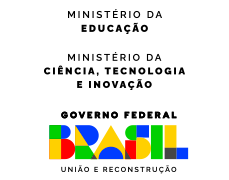24º CBM - Sessões Especiais: Controle Ótimo
O objetivo principal é propiciar a estudantes e jovens pesquisadores uma introdução aos métodos da geometria diferencial aplicados à teoria do controle não-linear.
Deverão ser apresentados conceitos básicos da teoria geométrica do controle, tais como, controle ótimo, controlabilidade de sistemas não-lineares, observabilidade, equivalência de sistemas e linearização.
As palestras cobrem, em conjunto, uma grande parte da teoria geométrica do controle não-linear, variando de resultados clássicos aos mais recentes de resultados puramente teóricos aos aplicados. Os tópicos apresentados mostram ainda as relações da teoria geométrica com áreas próximas tais como, geometria, cálculo de variações, singuaridades de distribuições, mecanica, semigrupos de Lie, etc.
| Horário |
16:30 – 17:10 | 17:25 – 18:05 | 18:20 – 18:40 | 18:40 – 19:00 |
| Quarta-feira, 30 de julho | W. Respondek | B. Jakubczyk | U. Ledzewicz, H. Schaettler | |
| Sexta-feira, 1 de agosto | H. J. Sussmann | Carlos Kubrusly | Felipe Monroy-Perez | S. Piskarev |
Symmetries and minimal flat outputs of nonlinear control systems
W. Respondek, INSA, Rouen, France
Data: 30 de julho
Horário: 16:30 – 17:10Resumo: The aim of the talk is to discuss the general observation that a nonlinear control systems is flat if and only if it admits a sufficiently big (infinite dimensional) group of symmetries. We recall the concept of flatness and define symmetries of control systems as diffeomorphisms which preserve the field of admissible velocities. In the first part of the talk we show that single-input systems that are not flat (that is, not static feedback linearizable) do not admit symmetries around equilibria at which the linear approximation of the system is controllable. In the second part of the talk we show that for two classes of flat systems (feedback linearizable ones and those equivalent to the canonical contact system for curves) minimal flat outputs determine the infinite dimensional group of symmetries.
Geometry of Distributions
B. Jakubczyk, Polish Academy of Sciences
Data: 30 de julho
Horário: 17:25 – 18:05Resumo: We present main results (from classical to recent ones) on local classification of smooth distributions. The course will start with classical results of Pfaff and Darboux, for contact distributions and contact forms, and of Engel. Then first occurring degenerations (Martinet case) will be discussed followed by a complete analysis of singularities of contact distributions. Finally, distributions with fixed growth vector will be studied. The role of abnormal curves in the problem of classification of distributions will be discussed.
Analysis of optimal controls for a class for biomedical models
U. Ledzewicz, H. Schaettler, Southern Illinois
Data: 30 de julho
Horário: 18:20 – 18:40
Resumo: urszula_heinz.pdf
Introduction to optimal control
H. J. Sussmann, Rutgers University
Data: 1 de agosto
Horário: 16:30 – 17:10Resumo: The main tool of optimal control is Pontriagin’s Maximum Principle. The adjoint equation will be analyzed in details and various versions of the Principle will be discussed. In particular, it will be shown how a geometric version can be used to analyze the structure of optimal trajectories in terms of relations among iterated Lie brackets of a given control system. We also discuss some issues related to our plenary talk.
The Lomonosov Theorem 1973-2003
Carlos Kubrusly, PUC-RJ, Brasil
Data: 1 de agosto
Horário: 17:25 – 18:05Resumo: kubrusly.pdf
Optimal control on nilpotent Lie groups
Felipe Monroy-Perez, INRIA Sophia-Antipolis, França
Data: 1 de agosto
Horário: 18:20 – 18:40Resumo: perez.pdf
On approximation of inverse problem for abstract parabolic differential equations in Banach spaces
S. Piskarev, Moscow State
Data: 1 de agosto
Horário: 18:40 – 19:00
Resumo: piskarev.pdf


